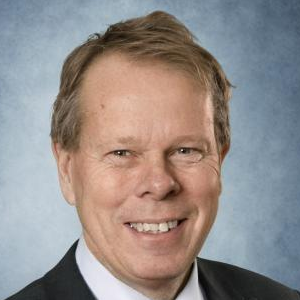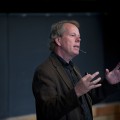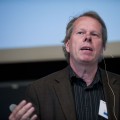Dr Mathias Uhlen is Professor of Microbiology at the Royal Institute of Technology (KTH), Stockholm, Sweden. Dr Uhlen is member of the Royal Swedish Academy of Engineering Science (IVA), the Royal Swedish Academy of Science (KVA), the European Molecular Biology Organization (EMBO) and member of the Human Proteome Organization (HUPO) council. He was Vice-President of the Royal Institute of Technology (KTH), responsible for external relations, from 1999 to 2001. He was the chairman of the Swedish Biochemical and Molecular Biology Society (SFMB) from 1994 to 1999. Dr Uhlen has more than 350 publications in bioscience with the focus on the development and use of affinity reagents in biotechnology and biomedicine.
In the early eighties, Dr Uhlen cloned and characterized staphylococcal protein A, which is now used extensively for purification of antibodies both in diagnostics and therapy. In 1983, he showed, for the first time, the principle of affinity tag for purification fusion proteins. The use of affinity tags for purification of recombinant proteins are now widely used in bioscience. In 1988, Uhlen published the use of magnetic micro spheres with streptavidin for automated solid phase applications. Such laboratory systems based on streptavidin beads are at present frequently used both in research and diagnostics. In 1995, his group described a new principle for affinity reagents, called Affibodies, and showed their use as research tool and recently as potential cancer therapeutics. Uhlen and colleagues also developed a new strategy for DNA analysis called Pyrosequencing, a method that has recently been further developed by 454/Roche into a so called next generation sequencing instrument.
Dr Uhlen is currently working on the Human Protein Atlas project (HPA), with the aim to systematically map the human proteome. At present, the Human Protein Atlas portal (www.proteinatlas.org) contains more than 10 million high-resolution images representing more than 12,000 human protein-encoded genes. He is also Director of the new Science for Life Laboratory at the Karolinska Institute campus in Stockholm responsible for high-throughput molecular life science, with a focus on genomics, proteomics, bioimaging, biobank profiling, bioinformatics and systems biology.
He has founded several companies, including Pyrosequencing AB (now Biotage AB), Affibody AB, SweTree Technologies AB, Magnetic Biosolutions AB (now Nordiag AS), Atlas Antibodies AB and Creative Peptides AB. He has received numerous awards, including The Svedberg prize in 1992, the Göran Gustavsson prize in 1993, the gold medal of the Royal Swedish Academy of Engineering Sciences in 2004, the Most Noble Order of the Seraphim – the Order of His Majesty the King in 2004, the Jerker Porath award in 2005, the Akzo Noble Award in 2005, the HUPO Distinguished Award and KTH Great Prize both in 2006. The Scheele prize in 2007 and the ABRF award in 2009.















